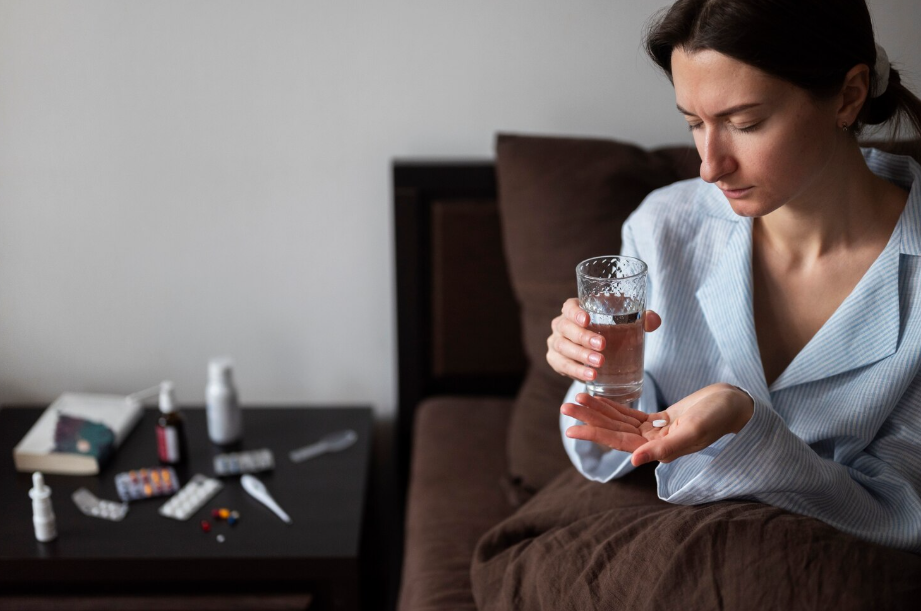
Understanding Relapse Triggers
In the journey to recovery, understanding relapse triggers is a critical step in preventing substance abuse recurrences. Recognizing these triggers and the associated warning signs can empower those in recovery to stay on track and avoid falling back into old habits.
Identifying Relapse Warning Signs
Relapse doesn't happen suddenly; it's often preceded by warning signs. Recognizing these early warning signs is a powerful strategy to prevent relapse. Indicators can include changes in behavior, mood swings, withdrawal, and doubting the effectiveness of the recovery process.
Moreover, changes in attitude, such as romanticizing drug use, increased isolation, avoidance of support systems, and cessation of hobbies, can signal a potential relapse. It's essential to stay vigilant about these signs and seek help when needed.
Emotional, Mental, and Physical Stages
Relapse is a gradual process that occurs in different stages: emotional, mental, and physical [3].
The emotional stage is often characterized by feelings of anxiety and depression. This stage can manifest as a shift in emotions, where the individual may start feeling isolated and stressed.
The mental stage involves the return of cravings and thoughts of substance use. An individual may start thinking about using again, and may even start planning how to obtain substances.
The physical stage occurs when the individual returns to substance use. It's the last stage of relapse but can be prevented if the early stages are recognized and addressed.
Understanding these stages and the ways to avoid substance abuse relapse triggers can significantly improve an individual's chances of maintaining recovery. Recognizing the early signs of relapse and taking action can make a significant difference in the recovery journey.
Coping Strategies for Relapse Prevention
Successfully avoiding substance abuse relapse triggers requires an individual to develop and utilize effective coping strategies. Coping skills are crucial in preventing relapse, and many drug and alcohol rehab programs emphasize them as part of the relapse prevention plan [5].
Developing Healthy Coping Skills
Healthy coping skills are strategies that help manage stressful situations or emotions that could potentially trigger a relapse. These skills can range from simple activities like regular exercise or reading a book, to more structured approaches such as cognitive therapy or mind-body relaxation techniques.
Relapse prevention therapy (RPT) is a proven approach that focuses on the identification of triggers and the development of coping strategies to prevent future relapses. It involves helping individuals recognize the early warning signs of a potential relapse and equipping them with the tools to navigate these challenging scenarios [5].
Importance of Coping Mechanisms
Coping mechanisms play a vital role in maintaining long-term sobriety. These strategies help individuals manage the cravings and negative feelings associated with recovery. One useful mental strategy is to view addiction as a bully that needs to be confronted and reduced in power. This perspective can help individuals regain control and keep potential relapses at bay.
Mind-Body Relaxation Techniques
Among the most effective coping strategies are mind-body relaxation techniques. These methods aim to reduce stress, increase mindfulness, and promote overall wellness. Research shows that approaches like mindfulness-based relapse prevention are effective in reducing drug and alcohol use and preventing relapse in the long term [3].
These techniques can include practices such as meditation, yoga, or deep-breathing exercises. They help individuals change negative thinking, manage stress, and develop healthy coping skills.
By understanding and implementing effective coping strategies, individuals in recovery can gain the necessary skills to manage potential triggers, thereby significantly reducing the risk of relapse.
Support Systems for Recovery
One of the most effective ways to avoid substance abuse relapse triggers is by utilizing various support systems for recovery. These can range from support groups and family and friends to reentering treatment facilities.
Utilizing Support Groups
Support groups, such as 12-step programs like Alcoholics Anonymous (AA) or Narcotics Anonymous (NA), can provide individuals with a sense of community, understanding, and accountability. These groups offer a safe space to share experiences, receive support, and learn from others who have faced similar challenges in their recovery journey [6]. They can be invaluable in helping individuals navigate the complexities of recovery, learn effective coping strategies, and gain insights into managing potential relapse triggers.
Family and Friends Support
The support of family and friends is another essential pillar in the recovery process. Their understanding, encouragement, and involvement can provide a strong support system that helps prevent relapse. Open communication, setting boundaries, and educating loved ones about addiction and recovery can foster a supportive environment for long-term success. By involving them in the recovery process, they are better equipped to provide the support needed during challenging times and can play a significant role in helping individuals stay on the recovery path.
Reentering Treatment Facilities
Understanding that addiction is a chronic disease and relapse is a possibility no matter how long a person has been abstinent from substance abuse is crucial. Once relapse occurs, it can be challenging for an individual to get back on the road to recovery, and immediate re-entry into treatment post-relapse is crucial for long-term health and recovery.
Treatment facilities offer a structured environment that supports individuals in managing their addiction and addressing relapse triggers. They provide access to qualified professionals who can guide and support individuals through the recovery process, helping them develop effective strategies for preventing relapse and maintaining sobriety. Addressing mental urges, developing a relapse prevention plan with a therapist, and having the support of a treatment facility are key in addressing and recovering from a relapse.
In summary, having a robust support system is essential in the recovery process and can significantly help individuals avoid substance abuse relapse triggers. Whether it's through support groups, family and friends, or treatment facilities, these support systems provide the necessary help and guidance for individuals on their recovery journey.
Therapeutic Approaches for Relapse Prevention
In the journey to overcome substance abuse and maintain sobriety, therapeutic approaches play a significant role in preventing relapse. The following sections explore three evidence-based therapeutic techniques: Relapse Prevention Therapy (RPT), Cognitive-Behavioral Therapy (CBT), and Motivational Interviewing.
Relapse Prevention Therapy (RPT)
Relapse Prevention Therapy (RPT) is an evidence-based approach that focuses on identifying and addressing triggers, as well as developing coping strategies to prevent future relapses. RPT teaches individuals to identify and manage high-risk situations, develop effective coping strategies, and enhance self-efficacy to prevent relapse [1].
RPT is designed to boost individuals' confidence in their ability to handle situations without resorting to substance use. This therapy is often combined with other therapeutic approaches to provide an all-encompassing treatment plan addressing the multiple facets of substance abuse.
Cognitive-Behavioral Therapy (CBT)
Cognitive-behavioral therapy (CBT) is a therapeutic approach commonly used in relapse prevention. CBT helps individuals identify and change negative thought patterns and behaviors associated with substance abuse [4].
By recognizing and altering these destructive thought patterns and behaviors, individuals are equipped with the tools necessary to cope with triggers and avoid relapse. CBT provides a framework for individuals to understand their reactions to certain situations and develop healthier responses that do not involve substance use.
Motivational Interviewing
Motivational interviewing is a counseling technique designed to facilitate behavior change by helping individuals explore and resolve ambivalence about changing their behavior, including substance use. This approach can be effective in preventing relapse, as it helps individuals strengthen their commitment to sobriety [4].
Motivational interviewing provides a supportive and non-confrontational environment where individuals can openly discuss their fears, hopes, and concerns about recovery. The goal is to ignite intrinsic motivation for change, providing a solid foundation for continued recovery and relapse prevention.
These therapeutic approaches form an essential part of the toolbox for maintaining sobriety and avoiding substance abuse relapse triggers. They provide the necessary skills and strategies to handle high-risk situations, manage emotional responses, and remain committed to the recovery journey.
Medications and Monitoring
Part of the journey towards recovery and maintaining sobriety involves adopting effective methods to prevent substance abuse relapse. The use of certain medications and monitoring strategies can greatly aid in sustaining progress and mitigating the risks of going back to substance use.
Medications for Relapse Prevention
Certain prescribed medications can serve as powerful allies in the battle against substance abuse relapse. These drugs are designed to help manage cravings, reduce the appeal of drugs or alcohol, or alleviate withdrawal symptoms. This, in turn, can help individuals maintain their sobriety.
Medications such as disulfiram, naltrexone, acamprosate, methadone, buprenorphine, and certain drugs for nicotine use disorders have shown effectiveness in preventing relapse for different substances according to NCBI Bookshelf.
These medications should be used under the supervision of a healthcare professional, as part of a comprehensive relapse prevention plan that also includes therapy, support, and lifestyle changes.
Monitoring Methods for Detection
Monitoring is another crucial aspect of relapse prevention. Regular check-ins and tests can help detect early signs of a possible relapse and provide an opportunity to intervene before a full-blown relapse occurs.
Monitoring methods such as urine drug screens, breathalyzers, skin monitors, saliva tests, and hair follicle drug tests have been used to detect drug/alcohol use and inform relapse prevention programs [4]. These techniques provide a factual basis for assessing a person’s progress and can help individuals stay accountable to their recovery goals.
Urine Drug Screens and Breathalyzers
Among the various monitoring methods, urine drug screens and breathalyzers are commonly used due to their ease of use and accuracy.
Urine drug screens are capable of detecting a range of substances including opioids, alcohol, cocaine, and marijuana, while breathalyzers primarily test for alcohol consumption. These tools can provide immediate results, allowing for swift intervention when necessary.
Understanding that these medications and monitoring techniques are not standalone solutions, but tools in a comprehensive relapse prevention plan, is vital. They can significantly contribute to the success of the plan when combined with therapeutic approaches, a strong support system, and the development of healthy coping strategies.
Building a Relapse Prevention Plan
A robust relapse prevention plan is crucial in the journey to recovery from substance abuse. This plan often includes elements like identifying triggers, developing coping strategies, and being part of support groups and aftercare programs. Importantly, relapse is not regarded as a failure but rather a part of the process that necessitates revisions to the existing recovery plan [7].
Triggers Identification
The first step in crafting a relapse prevention plan is identifying potential relapse triggers. These triggers often include changes in behavior, attitude, mood swings, and withdrawal. Recognizing these indicators early can pave the way for timely intervention and prevent a full-blown relapse. It's important to note that both the individual in recovery and their loved ones should be vigilant about these signs. Listening to loved ones and trusting one's instincts can be instrumental in spotting these warning signs early.
Coping Strategy Development
Once triggers are identified, the next step is to develop coping strategies. These strategies are personalized and tailored to the individual's unique needs and circumstances. Coping strategies can include mindfulness techniques, stress management, and healthy lifestyle choices. Importantly, these strategies need to be flexible and adaptable. If a relapse occurs, it's an opportunity to reassess and modify the existing coping strategies to better support the individual's recovery journey.
Aftercare Programs and Support Groups
Incorporating aftercare programs and support groups into the recovery plan can provide the ongoing support and guidance needed to sustain recovery. Aftercare programs typically offer continued therapy and education, helping individuals build resilience and maintain a substance-free lifestyle. These programs also provide a supportive community of individuals who are also in recovery, offering a safe space to share experiences and learn from others.
Support groups, on the other hand, provide a sense of community and understanding that can be incredibly empowering. They provide a platform for individuals to share their struggles and successes, learn from others' experiences, and gain practical advice on dealing with specific challenges associated with recovery.
In conclusion, understanding that addiction is a chronic disease and relapse is a possibility is crucial. Immediate re-entry into treatment post-relapse is necessary for long-term health and recovery. A comprehensive relapse prevention plan, which includes trigger identification, coping strategy development, and involvement in aftercare programs and support groups, is a valuable tool in the journey towards lasting sobriety.
References
[1]: https://americanaddictioncenters.org/adult-addiction-treatment-programs/signs-of-relapse
[2]: https://newchoicestc.com/blog/7-common-addiction-relapse-triggers-and-warning-signs-nc/
[3]: https://www.ncbi.nlm.nih.gov/pmc/articles/PMC4553654/
[4]: https://www.ncbi.nlm.nih.gov/books/NBK551500/
[5]: https://www.sanantoniorecoverycenter.com/rehab-blog/coping-skills-for-relapse-prevention/
[6]: https://www.canada.ca/en/health-canada/services/substance-use/get-help-with-substance-use.html
[7]: https://www.harmonyridgerecovery.com/resources/coping-skills-in-recovery/



